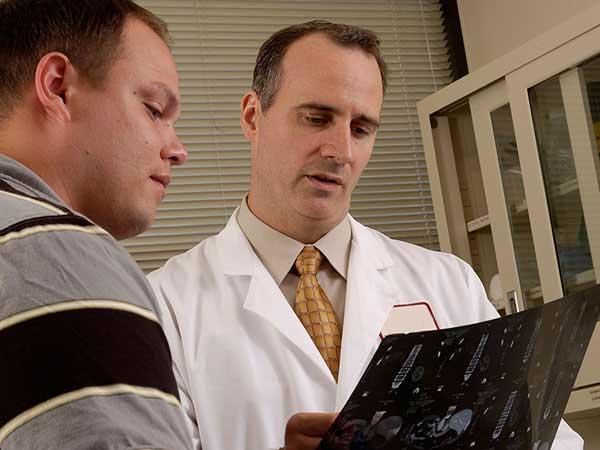Cancer Risk in Childhood Cancer Survivors Continues for Decades
, by NCI Staff
Survivors of childhood cancer have an elevated risk of developing second, distinct cancers into their forties and beyond, according to a new study.
Several studies have documented childhood cancer survivors’ increased risk of developing a second cancer, but this new study is among the first to assess this risk for survivors in their fifth and sixth decades of life. Although cancer risk increases with age, the study showed that childhood cancer survivors who were older than 40 had a more than twofold increased risk of developing a second cancer than would be expected in the general population.
The findings were published August 10 in the Journal of Clinical Oncology (JCO).
Led by Lucie Turcotte, M.D., of the University of Minnesota Medical Center, the study used data on more than 14,000 participants in the long-running NCI-supported Childhood Cancer Survivor Study (CCSS) who were initially diagnosed between 1970 and 1986.
Nearly 3,200 participants in this CCSS cohort were 40 or older when the study’s last participant survey was conducted. Among these individuals, 615 cancers were diagnosed, more than two-thirds of which (419) were nonmelanoma skin cancers.
Participants also had an increased risk for breast cancer, followed by kidney cancer, sarcoma, and thyroid cancer. Long-term survivors also had an increased risk for benign tumors.
Overall, approximately 16 percent of the survivors in this analysis developed a subsequent cancer between ages 40 and 55. The incidence of cancer in these survivors was similar regardless of whether they had also been diagnosed with a second tumor (benign or malignant) before age 40, the authors reported.
Second cancers in survivors are often linked to prior treatments, and in this study both radiation therapy and treatment with a platinum-containing chemotherapy drug were significantly associated with substantially increased risks of a subsequent cancer after age 40.
Many survivors included in the study had Hodgkin lymphoma as children (30 percent), in part because this cancer is usually diagnosed at an older age than other common childhood cancers, so they were more likely to already have reached their fifth and sixth decades of life.
High-dose radiation therapy directed at the chest was a standard treatment for Hodgkin lymphoma during the study’s time period. This “clearly influenced” the types of second malignant cancers seen in the study, wrote Mark Applebaum, M.D., and Susan Cohn, M.D., in an accompanying editorial in JCO.
Nearly 60 percent of Hodgkin lymphoma survivors had a malignant or benign tumor diagnosed after age 40, they continued, largely because these survivors had such a high incidence of breast cancer.
Overrepresentation of Hodgkin lymphoma survivors in the study is a limitation, agreed Julia Rowland, Ph.D., director of NCI’s Office of Cancer Survivorship.
“But the findings also show that for those diagnosed with specific kinds of cancer as children, their second cancer risk doesn’t go away,” Dr. Rowland said.
Dr. Turcotte agreed. “Our findings are probably going to be the most important for Hodgkin lymphoma survivors,” she said. “It tells us that anybody who got high-dose radiation should continue to undergo close observation as they get older.”
Although studies of more near-term outcomes in childhood cancer survivors have shown an increased risk of lung, colorectal, and head and neck cancer, the risk of such cancers was not increased in the long term in this JCO study. That may be, Dr. Turcotte said, because rates of these particular cancers are higher in the general population among people in this same age range, obscuring any potential excess risk in long-term survivors.
The study results affirm that the overall approach to monitoring health has to be different for childhood cancer survivors, Dr. Rowland stressed.
She recounted a recent conversation with a long-term childhood cancer survivor. “And she said, ‘Childhood cancer isn’t necessarily a death sentence any longer,’” Dr. Rowland recalled. “‘But it is a life sentence.’ That’s an important point to remember for our youngest cancer survivors.”
